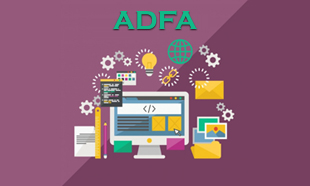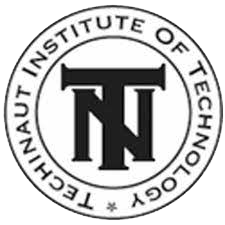0
Advance Diploma in Financial Application" at Verma Computer Institute, Hazratganj, Lucknow, Uttar Pradesh, affiliated with Techinaut Institute of Technology, provides in-depth training in financial software, accounting principles, and financial analysis, preparing students for roles in finance and accounting sectors.
ADVANCE DIPLOMA IN FINANCIAL APPLICATION
Verma Computer Institute, a Techinaut Institute of Technology franchise, is a prominent institution in Hazratganj, Lucknow, Uttar Pradesh, renowned for providing high-quality computer education. This detailed review focuses on the one-year Advanced Diploma in Financial Application (ADFA) course offered by Verma Computer Institute. This comprehensive course equips students with the necessary skills and knowledge to excel in various financial roles by integrating computer application techniques with economic principles.
COURSE OVERVIEW:
The Advanced Diploma in Financial Application (ADFA) course offered by Verma Computer Institute is meticulously designed to provide students with a strong foundation in financial concepts and computer applications. Over one year, students undergo rigorous training in financial accounting, management, and analysis while also gaining proficiency in using software applications essential for financial operations. The curriculum covers a wide range of topics, including computer basics, computer appreciation, computer organization, operating systems, MS Office applications, introduction to the internet, email communication, and advanced modules focusing on financial software such as Tally.
Module 1: Basics of Computer
The course begins with an introduction to the fundamental concepts of computing, ensuring that students understand computer hardware, software, and operating systems. Topics covered include the history of computers, components of a computer system, input and output devices, storage devices, and data representation. Emphasis is placed on the role of computers in financial applications and the importance of technology in modern economic practices.
Module 2: Computer Appreciation
In this module, students gain an appreciation for the capabilities and applications of computers in finance. They learn how technology has revolutionized financial operations, from data management to analysis and reporting. Case studies and real-world examples demonstrate the significance of computer appreciation in enhancing efficiency and accuracy in financial tasks.
Module 3: Computer Organization
Students delve into computers' internal structure and organization, focusing on hardware components and system architecture. They learn about the CPU, memory, storage devices, input/output devices, and how these components interact to execute instructions and process data. Understanding computer organization is essential for optimizing performance and troubleshooting issues in financial software applications.
Module 4: Operating System
This module introduces students to operating systems and their functions, specifically focusing on those commonly used in the financial industry. They learn about the role of operating systems in managing hardware resources, providing user interfaces, and facilitating software execution. Practical sessions involve installing, configuring, and managing operating systems to ensure compatibility and stability for financial applications.
Module 5: MS Word Processing
Students are introduced to Microsoft Word, a versatile word-processing application widely used in financial documentation. They learn how to create, format, and edit documents such as financial reports, letters, memos, and invoices. Emphasis is placed on creating professional-looking documents that adhere to industry standards and guidelines.
Module 6: MS Spreadsheet Package
This module focuses on Microsoft Excel, a powerful spreadsheet application. Students acquire skills in creating, formatting, and analyzing financial data using spreadsheets. They also learn how to perform calculations, create charts and graphs, and use advanced features such as pivot tables and macros to streamline financial analysis and reporting processes.
Module 7: MS Presentation Package
This module covers Microsoft PowerPoint, a popular presentation software for communicating financial information effectively. Students learn to design and deliver impactful presentations using multimedia elements such as charts, graphs, images, and animations. They also explore techniques for structuring presentations and engaging audiences during financial presentations.
Module 8: Introduction to the Internet
Students learn about the basics of Internet technology and its relevance to financial applications. They gain an understanding of internet protocols, domain names, web browsers, and search engines. They also explore how the internet is used for financial research, online banking, e-commerce, and communication in the financial industry.
Module 9: Email Communication
Email communication is essential for professional correspondence in the financial sector. In this module, students learn how to create and manage email accounts, compose and send messages, organize mailboxes, and use email etiquette in financial communication. They also explore advanced features like attachments, filters, and email security measures.
Module 10: Introduction to Tally
Tally is a popular accounting software used in businesses for financial management and reporting. In this module, students are introduced to the basic concepts of Tally, including ledger creation, voucher entry, and report generation. They learn how Tally simplifies financial accounting tasks and enhances accuracy and efficiency in financial operations.
Module 11: Administration in Tally
Students delve deeper into Tally's administrative features, learning how to configure and customize the software to suit the specific needs of a business. Topics covered include user management, security controls, backup and restore procedures, and data synchronization. Practical exercises help students become proficient in administering Tally installations and managing financial data securely.
Module 12: Managing Groups, Ledgers, and Vouchers
This module focuses on Tally's core accounting features, including managing groups, ledgers, and vouchers. Students learn how to create and organize accounts, classify transactions, and record financial data accurately using Tally's accounting features. They also explore advanced voucher types and customization options to meet complex financial reporting requirements.
Module 13: Cost Centers and Cost Categories
Cost centers and categories play a crucial role in financial management and analysis. In this module, students learn how to set up and manage cost centers and categories in Tally to track and allocate expenses accurately. They explore methods for analyzing cost data and generating reports to support decision-making in cost management.
Module 14: Introduction to Budgets
Budgeting is an essential aspect of financial planning and control in businesses. Students learn about the concept of budgets and their importance in managing monetary resources effectively. They explore different types of budgets, including master, operating, and cash, and learn how to create and monitor budgets using Tally's budgeting features.
Module 15: Introduction to Voucher
Vouchers record financial transactions in Tally. In this module, students learn about the various types of vouchers supported by Tally, including payment vouchers, receipt vouchers, sales vouchers, purchase vouchers, and journal vouchers. They also learn how to create, modify, and post vouchers accurately to maintain financial records in Tally.
Module 16: Currencies (Multiple Currencies and Foreign Exchange)
Managing multiple currencies and foreign exchange transactions is a common requirement in global businesses. In this module, students learn how to configure and manage multiple currencies in Tally, perform currency conversions, and record foreign exchange transactions accurately. They also explore features for managing exchange rates, gain/loss adjustments, and currency revaluation in Tally.
Module 17: Inventory Information
Inventory management is an integral part of financial accounting in businesses. Students learn how to set up and manage inventory information in Tally, including creating stock items, recording stock transactions, and generating inventory reports. They explore features for tracking stock levels, valuing inventory, and managing stock movements effectively.
Module 18: Voucher Entry
This module focuses on voucher entry in Tally. Students learn how to record various types of transactions using Tally's voucher entry features, including sales, purchases, receipts, payments, and journal entries. They gain proficiency in entering transactions accurately, applying appropriate accounting principles, and ensuring data integrity in financial records.
Module 19: Displaying Information from Tally
Students learn how to retrieve and display financial information from Tally using reporting and analysis features. They explore different types of reports available in Tally, including balance sheets, profit and loss statements, trial balances, cash flow statements, and fund flow statements. They also learn to customize reports, filter data, and export information for further analysis.
Module 20: Introduction to Taxation
Taxation is a critical aspect of business financial management. In this module, students gain an overview of taxation principles, including direct and indirect taxes, tax laws, and tax compliance requirements. They also learn how Tally supports taxation processes, including tax calculation, filing tax returns, and generating tax reports for compliance and analysis purposes.
Module 21: Introduction to Payroll
Payroll management is essential for businesses to ensure timely and accurate payment of salaries and wages to employees. Students learn about payroll components, including salary structures, deductions, allowances, and statutory requirements. They explore how Tally facilitates payroll processing, including setup, attendance recording, calculation, and generating payroll reports.
CONCLUSION:
The Advanced Diploma in Financial Application (ADFA) course offered by Verma Computer Institute equips students with comprehensive knowledge and practical skills in financial accounting, management, and analysis, integrated with computer application techniques. Students gain proficiency in performing financial operations, managing financial data, and generating reports accurately and efficiently through a well-structured curriculum and hands-on training using software applications such as Tally. Graduates of the ADFA course are well-prepared to pursue careers in diverse roles, such as financial analysts, accountants, auditors, tax professionals, and payroll administrators in various industries.


